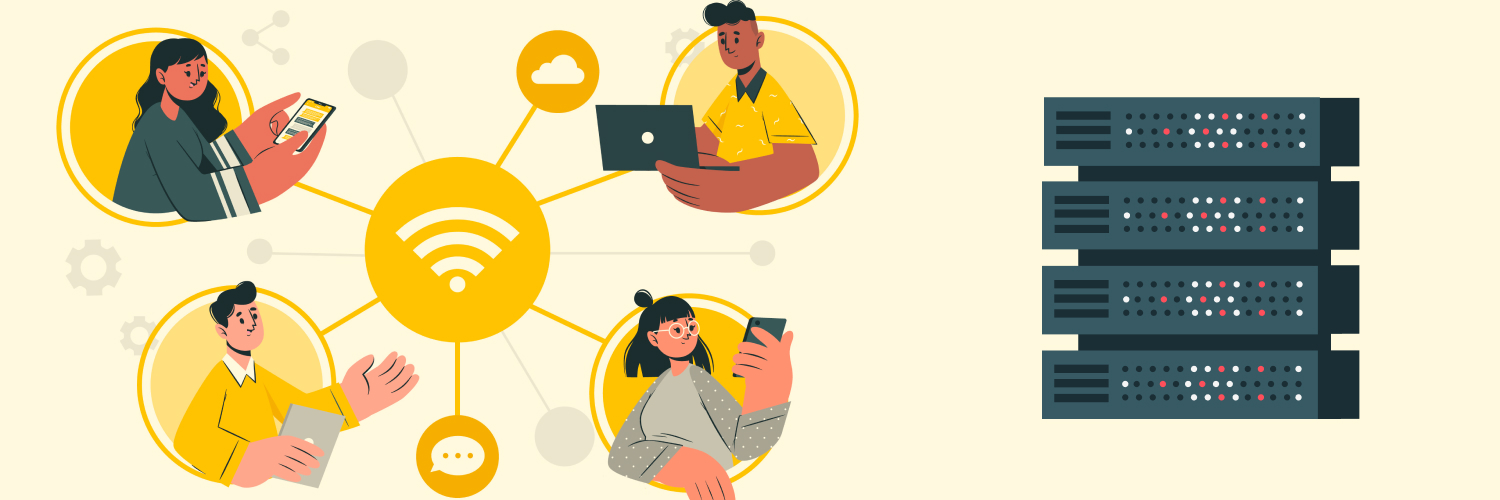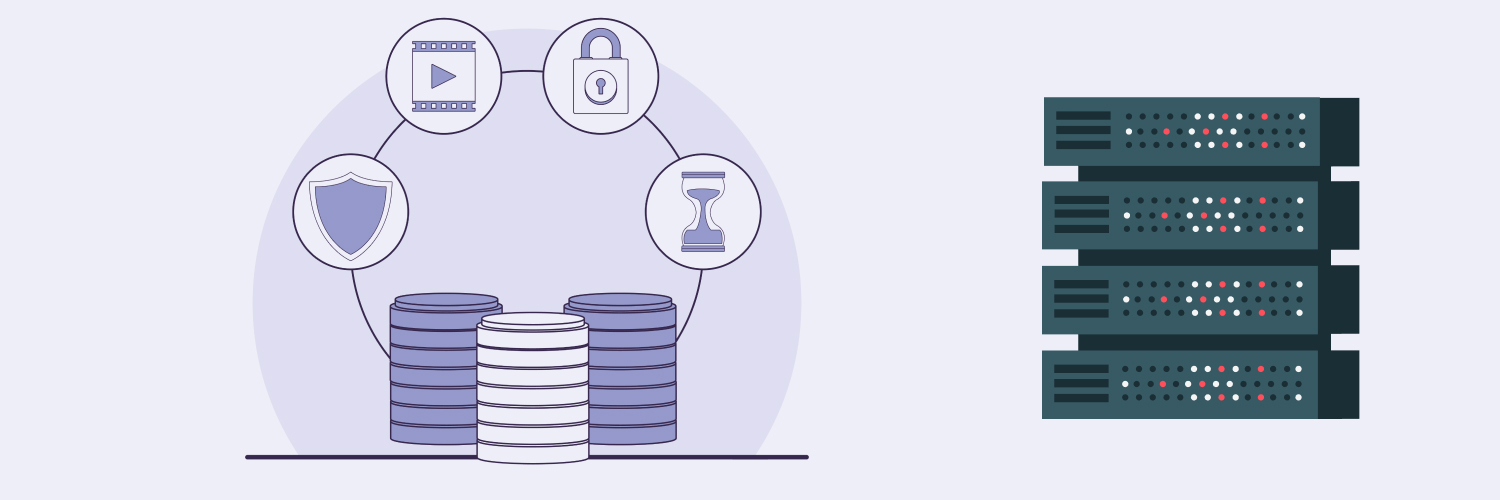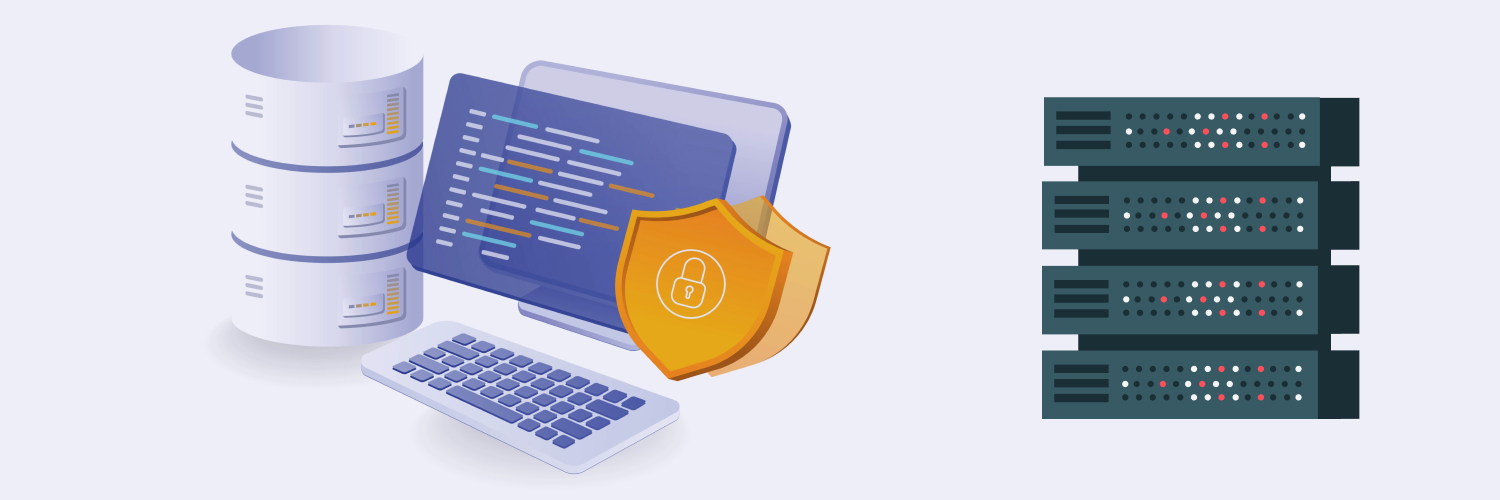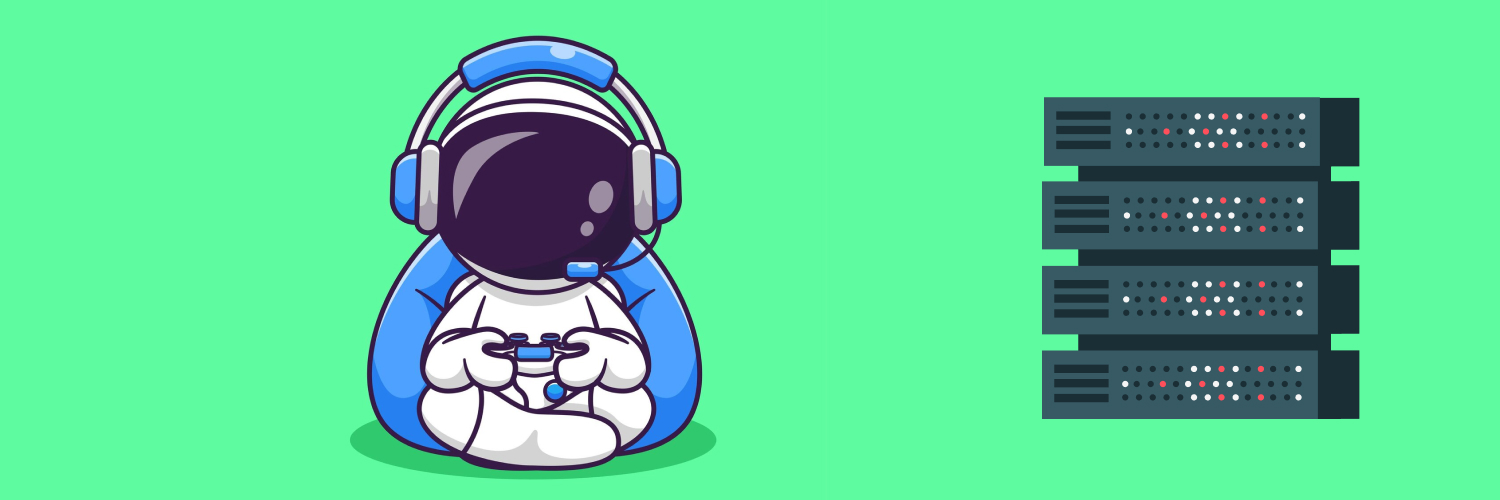Learn How To Use AI For Web Scraping
Sometimes, online scraping can be challenging, particularly when there is a lot of varied information to get, and websites are constantly changing. This makes it challenging for standard scraping techniques to keep up and accurately retrieve the data. However, web scraping can be made simpler and more precise by utilizing an AI website scraper.
2.5 quintillion bytes, or 2.5 billion gigabytes, of data were created in 2021 alone! The majority of this data is not easily accessible, so to use it for analysis and commercial choices, you must scrape it from the Internet. More sophisticated artificial intelligence web scraping solutions can be employed in addition to conventional online scraping techniques.
Web Scraping Basics

Web scraping is essentially an automated way to extract large amounts of data from websites. Imagine if you could copy and paste all the information you ever wanted from a website, but you could do it for millions of pieces of data at once. That’s the power of web scraping.
Most websites contain a lot of information, but it’s not always organized neatly. Web scraping tools can sift through the website’s code to find the specific data you’re interested in.
Once the scraper finds the data, it can copy and paste it into a format that’s easier to use, like a spreadsheet or database. This makes it much easier to analyze all that information.
Web scraping is used for many things, like price comparison tools that automatically check competitor websites or search engines that gather information to rank websites.
Challenges of Traditional Web Scraping

Web scraping is a powerful tool that can make a lot of processes easier. The conventional way of doing it — the process described above — isn’t necessarily the most efficient, though.
Conventional web scraping comes with significant challenges, including the following:
Difficulty adapting to dynamic websites
Web scraping hits a snag with websites that use dynamic content. These sites leverage AJAX to update content on the fly without needing a full page reload. The problem? Conventional web scraping tools only capture the initial HTML code, missing all the dynamic updates.
This is because scraping works by sending a request to the server and grabbing the returned HTML. Since dynamic content is generated after the initial page load, it’s not included in that HTML.
Further limiting things, traditional scrapers typically can’t process JavaScript, the language that often powers dynamic content. This means content that appears after user interaction, like clicking a button or logging in, is off-limits to conventional scraping methods.
Difficulty handling complex website structures and website changes
Web scraping processes also take a hit when websites have complex or inconsistent structures. This means writing custom code for each website and even different sections of the same site!
To make matters worse, websites love to change their layouts and underlying code (HTML). These updates often break your scraper, and even minor tweaks can cause chaos. The result? Constant maintenance and code updates to keep your scraper functioning.
Reduced data accuracy
The whole point of web scraping is to get valuable data. But if your scraper struggles with dynamic content or ever-changing structures, the information you collect might be full of errors or incomplete.
Even with the right tools, accuracy isn’t guaranteed. Conventional scraping tools can be fragile, easily broken by website changes. More importantly, remember: “garbage in, garbage out” applies here too. Inaccurate data sources or a lack of data validation can further compromise the quality of your scraped data.
Limited flexibility and scalability
Conventional web scraping is a good option for small-scale projects. Its limitations become apparent when dealing with larger tasks, though.
For instance, these tools can struggle to handle the massive datasets that often come with scraping a lot of information. Similarly, scraping from multiple websites can overwhelm their capabilities. Their simplicity makes them unsuitable for complex scraping endeavors.
Difficulty working with advanced anti-scraping measures
Many popular websites, including search engines, are treasure troves of data, making them prime targets for scrapers. This can strain their resources and create unwanted traffic. In response, these giants build high-tech defenses to block scraping attempts.
IP blocking, CAPTCHAs, rate limits, and honeypots are just a few weapons in their arsenal. As scraping methods get more complex, so do these anti-scraping measures. Unfortunately, conventional scraping tools are often left unarmed against these sophisticated defenses, struggling to bypass them and access the desired data. It’s like trying to break into a bank vault with a butter knife—nearly impossible.
Benefits of AI Web Scraping

Web scraping with AI is an excellent way to overcome these hurdles and see better results from your scraping endeavors. Here are some of the most significant advantages an AI web scraper can offer:
Adapts to dynamic content
Unlike conventional web scraping tools that get tripped up by changes in website structure, AI-powered tools offer a sigh of relief. They achieve this flexibility by going beyond the limitations of HTML parsing.
AI scrapers act more like a web browser, analyzing the visual structure of the webpage itself. This is possible thanks to deep learning models like convolutional neural networks, which excel at image recognition.
As a result, AI scrapers can adapt to website changes on the fly, automatically identifying the data you need. This eliminates the constant need to rewrite code for every website update, a major headache with conventional scraping.
Essentially, AI scrapers see beyond the code, providing dynamic flexibility that conventional tools simply lack.
Increases speed and accuracy
AI injects a shot of speed into the web scraping process.
Imagine being able to extract data from multiple websites at once! This parallel processing capability, powered by AI’s ability to handle complex tasks simultaneously, significantly reduces scraping time.
Speed isn’t the only benefit, either. AI also improves the accuracy of the process.
By employing techniques like natural language processing (NLP), AI scrapers can understand the context and meaning of the data they extract. This not only reduces the chance of errors but also allows for more sophisticated data filtering and analysis. It’s like having a built-in quality check that ensures you’re getting the most accurate information possible.
Improves scalability
AI unlocks the true potential of web scraping when it comes to scale. This magic trick is powered by machine learning (ML), the workhorse behind AI automation. ML algorithms allow AI scrapers to automate the entire data extraction process, handling massive amounts of data from multiple sources and websites with ease. This is a game-changer for those working with big data – the ever-growing datasets that fuel many modern applications.
Imagine needing a vast amount of data to train a machine learning model – the kind that allows self-driving cars to navigate or facial recognition software to identify people.
Conventional scraping tools would buckle under the pressure. AI scrapers, on the other hand, can handle this with ease, efficiently collecting the data you need to train your powerful ML models and unlock groundbreaking applications.
Navigates anti-scraping measures with ease
AI scrapers also have the ability to mimic human behavior. They can simulate a human’s browsing speed, click patterns, mouse movements, and more, all of which are important when it comes to helping the scraper work around anti-scraping measures.
What to Look for in an AI-Based Web Scraping Tool

Are you intrigued by the idea of using an AI scraper? These tools offer a myriad of benefits and can make the scraping process much easier and more productive.
The key to experiencing all these perks, though, is using the appropriate tool.
Here are some key factors to consider when choosing an AI-powered web scraping tool:
Ease of use
User-friendliness is a major advantage of AI scrapers. Not all of them are created equal, though.
Look for tools with intuitive interfaces that don’t require extensive coding knowledge. Point-and-click functionality or visual selectors are ideal for beginners, while more advanced options might appeal to users with some programming experience.
Scalability
Consider the volume and complexity of your scraping needs as well. Do you plan to scrape a single website or multiple sources? Will you be dealing with large datasets?
Choose a tool that can handle your current and future scraping requirements.
Data extraction capabilities
Not all AI scrapers are created equal. Make sure the tool can extract the specific data types you need, whether it’s text, images, or even dynamic content. Some tools offer advanced features like natural language processing for deeper data extraction.
AI functionality
The core of an AI scraper is, of course, its AI engine.
Look for a tool that utilizes robust AI techniques like computer vision and machine learning. This ensures the scraper can adapt to website changes and handle complex structures effectively.
Data export options
Flexibility in exporting your scraped data is crucial. The tool should allow you to save your data in various formats like CSV, JSON, or Excel for easy integration with your analysis tools. Some advanced options might even offer direct API access for programmatic data retrieval.
Pricing
AI scraping tools come with varying pricing structures. Some offer freemium plans with limited features, while others have tiered subscription models based on usage or data volume.
Consider your budget and scraping needs to find the most cost-effective option, whether that’s an AI web scraper free or a more costly tool.
Security and reliability
Since you’ll be potentially handling sensitive data, ensure the tool has robust security measures in place. Look for features like data encryption and secure data storage. Additionally, consider the tool’s uptime and customer support to guarantee smooth operation.
How to Use an AI Web Scraper

Once you’ve chosen your web scraping AI tool, you’ll be ready to start the data collection process. Every tool has its own unique processes that you must follow when using it. However, here is a general breakdown you can keep in mind when figuring yours out:
Point and click (usually)
Many AI scrapers boast user-friendly interfaces. You might simply need to point and click to define the data you want to extract from a sample webpage. However, some tools might require a bit more technical knowledge for complex scraping tasks, so don’t be surprised if there’s a slight learning curve.
Experience the power of AI
Once you’ve identified your target data, the AI engine takes center stage. It analyzes the webpage structure and content, often using techniques like visual recognition and natural language processing. This allows the scraper to adapt to changes and extract the data you need accurately.
Collect and export your data
When it comes to the data you’ve extracted, you can typically choose how you want it exported. Common options include storing it in a format like CSV (comma-separated values) or directly feeding it into your data analysis software.
Proxies: The Secret to Getting More Out of Your AI Scraper

Web scraping with AI is a great way to make your processes more efficient. There are additional steps you can take to get the most out of your AI tool for web scraping, though.
One of the most effective ways to improve web scraping is by using proxies.
In the world of web scraping, proxies act as intermediaries between your computer and the internet. Imagine you’re trying to reach a library (the website), but instead of going directly, you visit a local bookstore (the proxy) first. The bookstore then fetches the book (the data) from the library and delivers it to you.
When you use a proxy for scraping, your web traffic doesn’t go straight to the website you’re targeting. Instead, it gets routed through the proxy server first. The proxy acts like a mask, hiding your computer’s IP address from the website. The website only sees the IP address of the proxy server, not your own.
Benefits of using proxies for web scraping
Combining your AI website scraper with proxies is an excellent way to enhance your web scraping process. Here are some of the top benefits proxies provide:
- Cloaked identity: The biggest perk of proxies is anonymity. By hiding your real IP address, you can scrape websites without revealing your identity. This can be crucial for avoiding website blocks or scraping ethically sensitive data.
- Bypassing geo-restrictions: Some websites restrict access based on your location. Proxies located in different countries allow you to bypass these restrictions and scrape content that might be unavailable in your region. Imagine scraping data on local businesses – a proxy lets you virtually visit any location to gather the information you need.
- Evading detection and blocking: Websites often employ techniques to detect and block scraping attempts. Proxies can help you fly under the radar. By rotating through different proxy IPs, you appear as multiple users accessing the website, making it harder for them to identify and block your scraping activity.
- Managing scrape frequency: Scraping too aggressively can overload a website’s servers and get you blocked. Proxies allow you to distribute your scraping requests across multiple IP addresses, mimicking natural user traffic patterns and reducing the risk of overloading the website.
- Enhanced security: Some proxies offer additional security features like data encryption. This can be beneficial if you’re scraping sensitive data, adding an extra layer of protection during the data transfer process.
- Improved efficiency: Depending on your location and the proxy server’s speed, using a proxy can sometimes even improve scraping efficiency. This is because a well-maintained proxy server might have a faster connection than yours, especially if you’re dealing with geographically distant websites.
Types of proxies to use for web scraping
Do any of those benefits sound appealing to you? Are you chomping at the bit and eager to start using proxies?
Before you start your search, let us help you out by breaking down the different kinds of proxies you may want to use.
That’s right — there’s more than one type of proxy that you can use alongside AI to scrape a website. The following are three of the most popular options:
Residential proxies
Residential proxies are a specific type of proxy server that takes its IP addresses from real homes and internet service providers (ISPs). Imagine using a proxy that masks your identity with the IP address of someone’s home computer, essentially making it look like you’re browsing the web from their house!
Here’s what makes residential proxies unique:
- Superior anonymity: Since residential proxies come from actual homes, they blend in seamlessly with regular internet traffic. This makes it much harder for websites to detect and block them compared to traditional proxies, which might have easily identifiable patterns.
- Geo-location targeting: Residential proxies allow for precise targeting based on location. Need data from users in a specific country, state, or city? With residential proxies, you can choose a proxy with an IP address from that exact location, making it appear as if you’re scraping locally. This is particularly useful for gathering geo-specific data.
- Trustworthiness signal: Websites are more likely to trust traffic coming from residential IP addresses, as they’re associated with regular internet users. This can be beneficial for scraping websites with heavy anti-scraping measures.
However, there are also some downsides to consider:
- Slower speeds: Residential proxy servers often have slower connection speeds compared to data center proxies. This is because they’re essentially borrowing bandwidth from individual home internet connections.
- Availability fluctuations: The availability of residential proxies can fluctuate depending on the location and demand. There might be times when a specific location’s proxies are limited.
Data center proxies
Data center proxies are another type of proxy server commonly used for web scraping.
Unlike residential proxies that borrow IPs from individual homes, data center proxies originate from large pools of IP addresses managed by data centers. Think of them as virtual offices with many computers, each assigned a unique IP address.
Here’s a breakdown of data center proxies and their key advantages:
- Speed demons: Data center proxies boast significantly faster connection speeds compared to residential proxies. This is because data centers have robust infrastructure designed for high-performance computing and internet traffic handling.
- Cost-effective choice: Data center proxies are generally more affordable than residential proxies. Their lower cost makes them a good option for large-scale scraping projects or situations where budget is a major concern.
- Reliable availability: With vast IP pools at their disposal, data center proxies offer consistent availability. You’re less likely to encounter situations where specific locations are unavailable for scraping.
There are also a few potential downsides to data center proxies, including the following:
- Lower anonymity: While data center proxies offer some level of anonymity by masking your real IP, they’re generally easier for websites to detect compared to residential proxies. The large pool of IPs associated with a single data center can raise red flags for some anti-scraping measures.
- Limited geo-targeting: Data center proxy IPs are typically tied to the physical location of the data center itself. While you might get some regional targeting options, the precision won’t be on par with residential proxies that can offer IP addresses from specific cities or neighborhoods.
ISP proxies
ISP proxies, also sometimes referred to as static residential proxies, occupy an interesting middle ground between traditional data center proxies and residential proxies. They attempt to combine some of the benefits of both worlds but also come with their own set of limitations.
Here’s a breakdown of ISP proxy benefits:
- Hybrid approach: Unlike data center proxies with IPs solely from data centers, ISP proxies source their IPs from internet service providers (ISPs) like Comcast, Spectrum, or AT&T. However, these IP addresses aren’t necessarily from individual homes like true residential proxies.
- Registered with ISPs: A key feature of ISP proxies is that they are registered with the corresponding ISPs. This provides a layer of legitimacy compared to some anonymous data center proxies.
- Speed advantage: Since ISP proxies often leverage data center infrastructure, they can offer faster connection speeds compared to traditional residential proxies that rely on individual home internet connections.
- Perceived anonymity: ISP proxies can appear more legitimate to websites due to their ISP registration. This might help them bypass some basic anti-scraping measures.
One of the only downsides to ISP proxies is that they offer limited geo-targeting. Similar to data center proxies, ISP proxy geo-targeting capabilities are typically limited to the physical location of the ISP’s infrastructure. Precise city or neighborhood targeting, a strength of residential proxies, is generally not available.
Final Thoughts

Using AI for web scraping is a great way to speed up the process, work with dynamic web content, and overcome anti-scraping technology. Use the information shared in this guide to choose the best AI web scraper for your needs and get the most out of your new tool.
Do you want to use proxies along with an AI website scraper? Rayobyte has got you covered with reliable residential, data center, and ISP proxies. Sign up today to get started.
The information contained within this article, including information posted by official staff, guest-submitted material, message board postings, or other third-party material is presented solely for the purposes of education and furtherance of the knowledge of the reader. All trademarks used in this publication are hereby acknowledged as the property of their respective owners.






